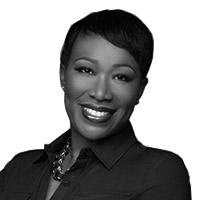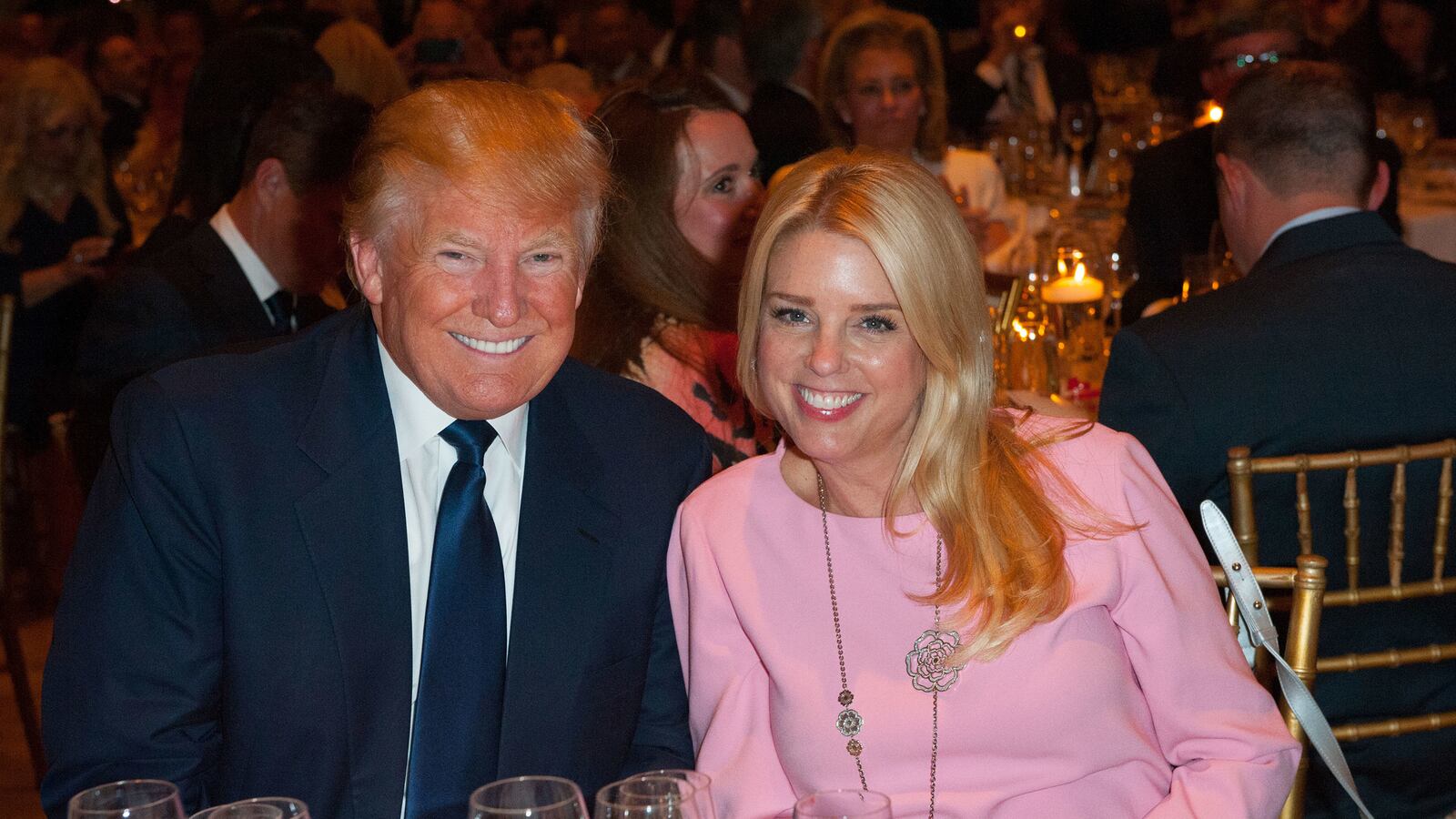The revelations that Donald Trump broke federal tax laws to make a $25,000 campaign donation to Florida Attorney General Pam Bondi through his charitable foundation days after her office declined to investigate Trump University, and that he months later held a lavish fundraiser for her at his Palm Beach estate, would quite likely be the end of any other presidential campaign. But Donald Trump is no ordinary candidate.
The sheer volume of outrages, reversals, flamboyant charges, and conspiracy theories he advances keeps the political press skidding from dumpster fire to dumpster fire as reporters chase down every oddball accusation Trump and his surrogates hurl at Hillary Clinton, leaving little time for substance. But there are real and serious questions we in the media should be asking Trump. Here are a few, for starters.
1. Was Trump’s behavior just unseemly, or sloppy, or was it a bribe?
This would certainly be asked of any other candidate (imagine the same story, involving Hillary Clinton, the New York attorney general, and a posh fundraiser in Chappaqua). Trump has said that his obscuring of the source of his campaign contribution to Bondi by having his foundation write the check instead of him (he says he later reimbursed his charity) and that filing a false claim with the IRS were “clerical errors.” But couldn’t they also be evidence of a deliberate attempt to cover up unlawful behavior? That’s something a new federal complaint filed by the liberal watchdog group CREW, alleging “self-dealing” by Trump through his foundation’s Bondi donation, seeks to find out.
Trump flacks have laughed off the $25,000 gift as no big deal—a mere pittance for the theoretical billionaire. But in Florida, two developers were thrown in jail in 2009 by state prosecutors for handing out $25,000 and a $3,200 golf membership to a county commissioner in exchange for favorable votes (the commissioner went to prison, too, for apparent money laundering.) And Trump and Bondi aren’t county-level players. He is vying to be the president of the United States.
Not that pursuing Trump would be easy. One former DOJ official now in private practice told me that for what Trump did to rise to the level of a federal crime there would have to be an explicit quid pro quo. Of course, one might call allegedly foregoing a criminal probe in exchange for a check a hell of a lot of quid and quo.
2. Has Trump placed Bondi in legal jeopardy?
Trump and Bondi have made conflicting statements about whether she solicited the contribution (she says she did, weeks before the decision on whether to pursue a case against Trump University was made; he says they never discussed it), which raises the obvious question: Which one is telling the truth?
As former federal prosecutor and one-time Florida State Sen. Dan Gelber put it in a recent post on his website: Whether or not Bondi knew that her own office was looking into Trump University when she asked for a campaign contribution from her “friend” Donald Trump (an extraordinary claim in itself), “Bondi should have rejected the money, or returned it immediately upon learning that Trump was seeking an action—or in this case an inaction—from her Office.” As Gelber points out, for the criminal justice system to maintain public trust, prosecutors can’t act like ordinary politicians. They can’t afford to operate in a way that raises the specter that they are for sale.
In Bondi’s case, she is not just Florida’s top prosecutor, she was Trump’s first high-level Florida endorser, spurning hometown candidate Sen. Marco Rubio; she was talked up in Trumpworld for a spot on his ticket and given a prime speaking slot at the Republican convention.
These are not frivolous questions. Clinton’s emailgate was triggered in part by legal filings from Judicial Watch, a gadfly conservative “watchdog” group that has been hunting the Clintons since the 1990s. Meanwhile, a June complaint filed with Robert L. Capers, U.S. Attorney for the Eastern District of New York, and Christopher Canova, the U.S. Attorney for the Northern District of Florida, remains open and unresolved. It accuses Bondi of “violations of federal anti-bribery laws and federal laws prohibiting mail fraud, wire fraud, and criminal conspiracy.”
The filing adds that: “Federal jurisdiction in this case is based on evidence that Trump and Bondi participated in a bribery scheme in New York and Florida that crossed state lines, violated federal laws concerning tax exempt charitable organizations, and required the use of interstate telephone, mail, internet and banking facilities. There is probable cause to find that Trump and Bondi used the mail, telephone, internet [sic] and other interstate facilities with the intent to give and receive a bribe.”
No federal action has been taken thus far, either on this claim or on complaints filed against Bondi by the Florida Bar Association, Florida Elections Commission, and Florida Ethics Commission. She remains a member in good standing of the Florida bar. And the threshold for action is certainly high. The feds have had some high-profile misses: notably Alaska Sen. Ted Stevens, whose conviction on corruption charges was vacated after it emerged that prosecutors withheld information that could have aided his defense, and former Virginia governor Bob McDonnell, whose bribery conviction was overturned by a unanimous Supreme Court.
3. Could the Bondi donation scandal follow Trump into the White House?
Those of us who are old enough to remember Whitewater recall that it was a minor Arkansas land deal failure that haunted the Clintons into the White House straight through to impeachment.
If Trump were to be elected, it’s arguable that the non-fictitious Bondi donation scandal could follow him to Washington, fueled by campaign spending watchdog groups like CREW, or individual citizens like Boston lawyer Whitfield Larrabee, who filed the federal bribery complaint. And it’s arguable that it should, if the likely still-Republican-controlled and hyper-partisan House failed to act in the face of seeming bribery by an incoming Republican president.
There will be more revelations on Trump University as the New York and California cases move forward, and they are likely to drag on past November, making the potential forestalling of further probes by dint of campaign cash a highly relevant story.
4. Are there other instances of Trump pay-to-play?
Trump famously bragged during one of his rallies that when he writes checks, politicians “kiss [his] ass” and do his bidding. That’s an unfortunate boast given the Bondi affair. But it raises the question of when else such a thing might have occurred.
5. Would a President Trump’s top cronies be in a position to quash a DOJ probe?
And it is here that we return to the Beltway’s favorite narrative: optics.
Trump has dispatched his two highest-level surrogates—and longtime cronies—to defend Bondi on television. One of them, the increasingly bizarre Rudy Giuliani, who is on loan as a Trump campaign adviser from his day job at the law firm Greenberg Traurig, which has handled various Trump legal ugliness, including his attempt to bully an Indian casino in upstate New York, co-hosted the $3,000-a-head Mar-a-Lago fundraising soiree for Bondi. The other, Chris Christie, made a $30 million tax debt for Trump’s casinos all but disappear once he became New Jersey governor. Either of these men could wind up running the Justice Department in a Trump administration, presenting immediate potential conflicts of interest should career DOJ officials want to look into the Bondi pay-for-play.
There are surely more questions. There are surely more questions. If Benghazi can be investigated for five years, surely Bondigate is worthy of a lot more of our time and attention.






